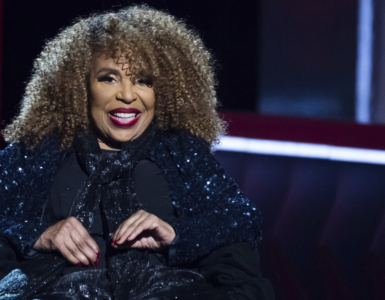(Courtesy/NBC News.)
Gen-Z is a key voting bloc in November’s election, with more than eight million newly eligible voters.. many of whom have been disproportionately affected by rising prices, higher housing costs and student loan debt.
In a survey of Gen-Zers conducted by Bank of America, over half of the respondents said they did not have enough savings to cover three months of expenses, and nearly one-third said they felt they didn’t make enough money to have a savings account.
The rising cost of living combined with stagnant wages has limited financial options for many young people after college.
“All of our money is going to housing, and a lot of people are heading back to their hometowns because they realized it’s not a sustainable way to live,” said 24-year-old Maxwell Savage, who graduated from Howard University last spring. “All of my money is going to work, rent and I can barely afford to eat out, even if I want to get some Chipotle.”
Over the last two decades, housing costs have risen faster than income in America while the housing demand has grown more than the housing supply, according to The Department of The Treasury.
Savage said the only way they’ve been able to get by is because they pay rent on a sliding scale, where the rent of each tenant is based on income and the size and amenities of their rooms.
According to the Washington Post, Gen-Z is spending 31% more on housing than their millennial counterparts did 10 years ago. This, coupled with a shrinking job market, has made it difficult for young people to sustain themselves and left many of them discouraged.
“While it can be cool and interesting to be exploring jobs and learning new things, it’s also very, very demoralizing,” Savage said. “You can apply to 50 jobs and just simply not hear back. Not even a no, just completely ghosted.”
The shrinking job market is compounded by students graduating with considerable student loan debt.
Imani Evans, a junior at Howard and the founder and president of Howard’s First Generation Students club said the burden of loans, tuition, inflation and housing insecurity have complicated her college experience.
“I thought it was just going to be a set $30k for tuition, but every year that I’ve been here, it’s increased by thousands, and as a first-generation student, you can’t plan for that,” she said. “My mom had me at 16, so there was no college fund. There was no trust fund. There was no cushion for that.”
Evans was forced to take out more loans and pick up three jobs to make up for this increased tuition balance.
“I felt like it was going to be impossible for me to study and work enough shifts and hours to accumulate each month, send money back home to my mom to alleviate financial expenses with my sisters and still provide for myself clothing and food,” she said.
Evans hopes a Harris presidency would help to alleviate the stressors of inflation and student debt.
“One of our presidential candidates is a Howard alumna, and I just hope that she sees how inflation is impacting Washington, D.C. and the areas around D.C. where you can’t even live within a five-minute walk from Howard without paying $2400,” she said.
Others have little faith in any presidential candidate’s plans to address inflation.
“The figures I’m hearing versus what I’m experiencing at the grocery store are wildly different,” said 23-year-old Ela Fessehaye, a recent graduate from Howard University.
“I feel like on one end, politicians are addressing the fact that we have an inflation issue, but they’re not actually being very accurate about how significant inflation is,” she said.
Fessehaye said she feels politicians’ concerns about inflation are insincere.
“I don’t think they actually experience inflation the way Americans do because our politicians are very rich in this country,” she said. “It just feels like another talking point to them.”










Recent Comments